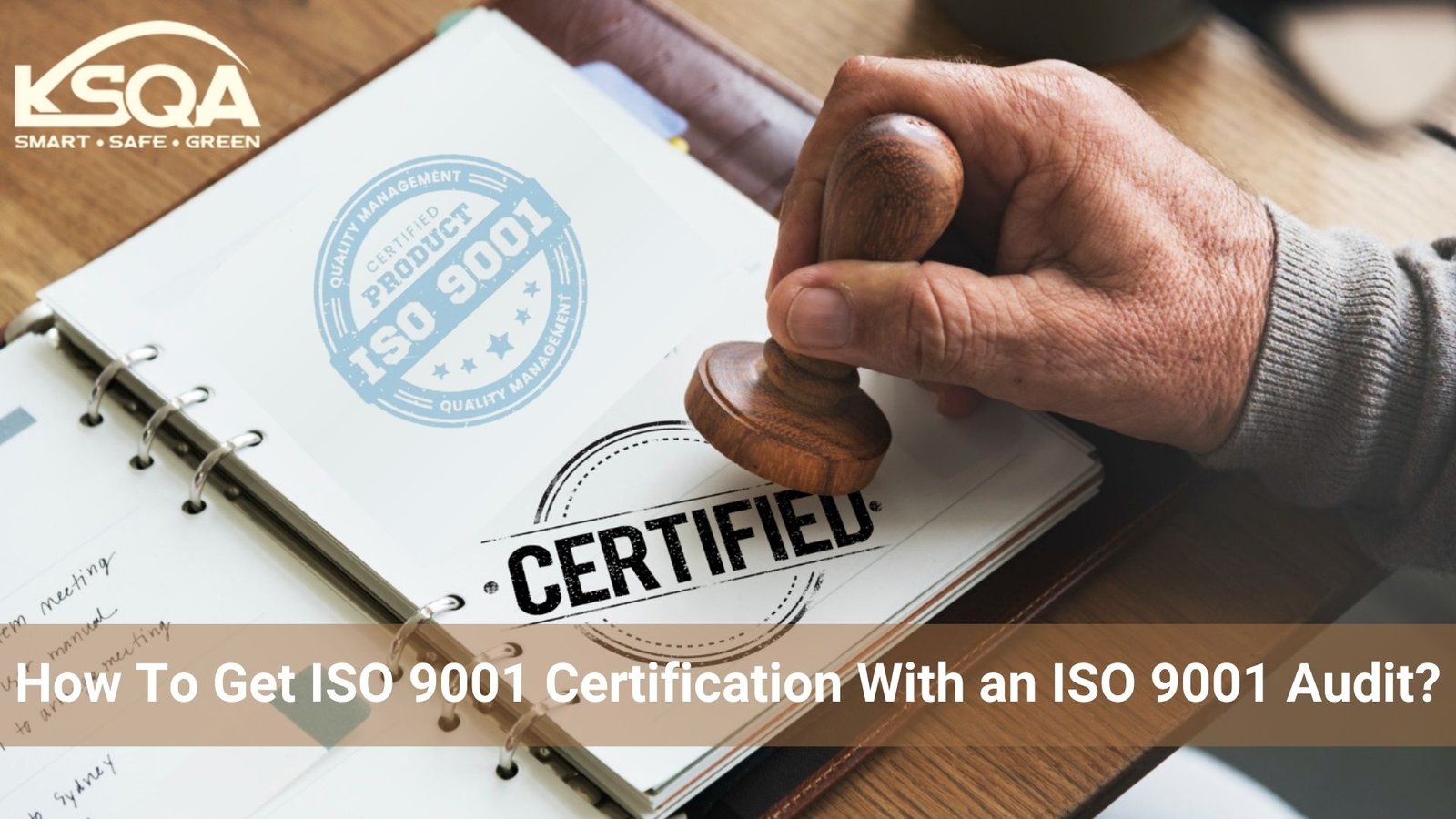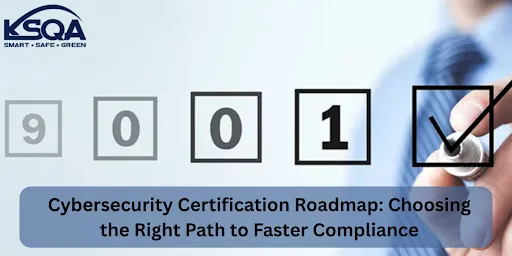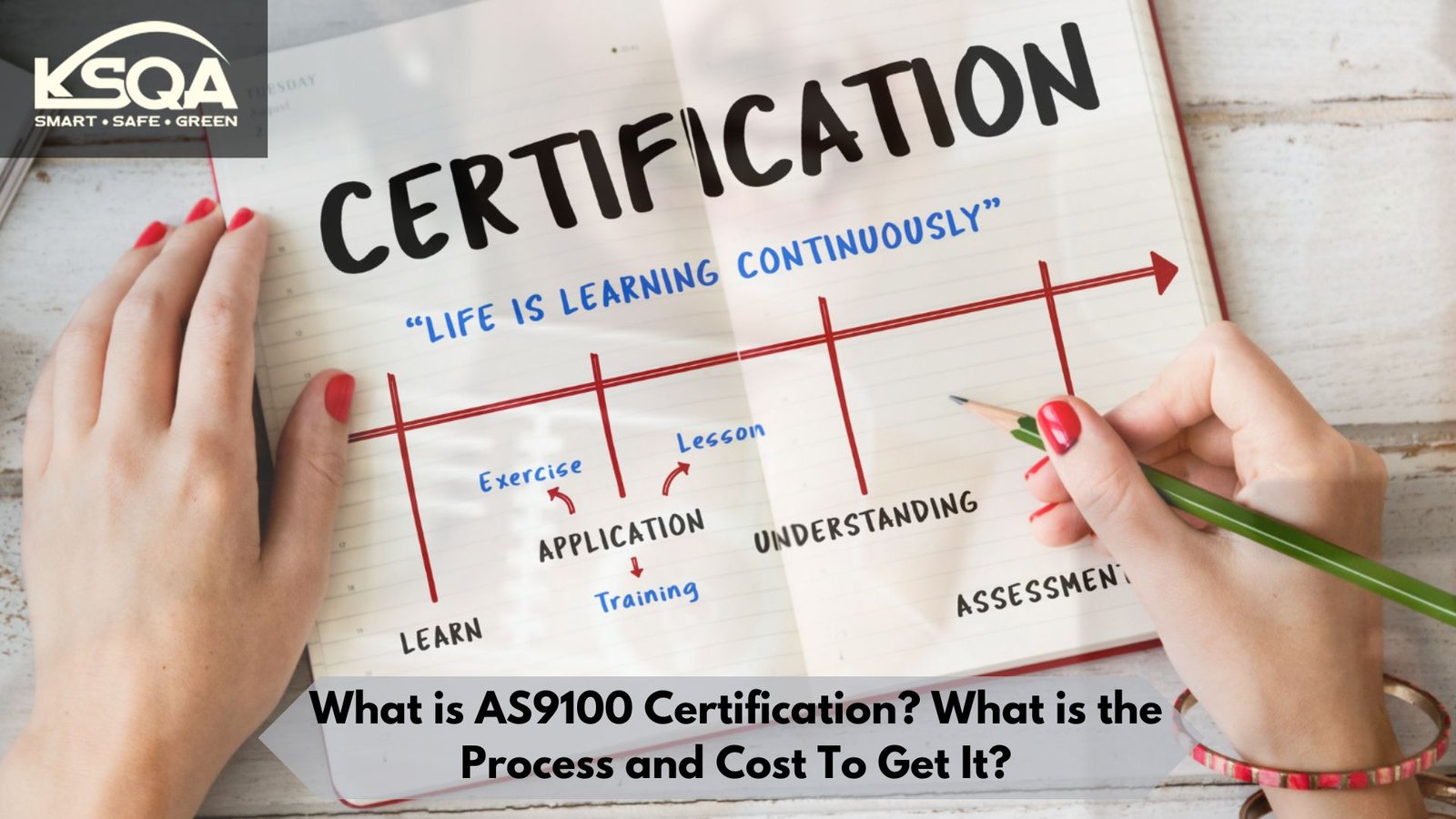Getting ISO 9001 certification is an impressive target that any organization that is convinced and committed to quality management and continuous improvement can achieve. Nevertheless, the road to achievement proves hard. The process of certification involves passing hurdles in the form of mandatory regulations, audits, and checks in order to demonstrate compliance.
In this blog, we will learn the procedure for how to get ISO 9001 Certification with emphasis on ISO 9001 audit, which is of utmost importance.
Procedure Of Getting ISO 9001 Certified
Getting ISO 9001 certified requires proper procedures and steps; each step is crucial for success of getting certified. Here are the steps to follow:
Understand ISO 9001: Learn the ISO 9001 standard and its clauses for a QMS. Make sure you understand the provisions by heart. Know and implement: quality principles/customer focus, leadership, and continual improvement are all vital.
Assess Current Practices: Scrutinize your company’s ongoing operations, processes, procedures, and quality management practices with respect to the ISO: 9001 requirements. Find out the existing shortfalls or areas that need to be handled to meet the approved standard
Develop Documentation: Develop QMS processes and procedures according to the ISO 9001 criteria and formulate an accompanying lexicon for clarity. It is about the definition of quality manuals, procedures, work instructions, and records that are required to show compliance.
Implement the QMS: The standard quality management system (QMS) processes and techniques shall be thoroughly documented and disseminated throughout your organization. Guarantee that the staff is aware of its roles and duties as outlined in the QMS and knows how to make sure to act in accordance with the ISO 9001 requirements.
Conduct Internal Audits: Conduct internal audits, for the purpose of assessing the effectiveness and correctness of the recently introduced management system. Internal audits play a crucial role in spotting any problems or making recommendations to areas that require fixing the nonconformities prior to the certification process.
Management Review: Overall, QMS needs to be frequently audited through management reviews to define performance, identify opportunities for improvement, and always make the QMS compatible with strategic goals of the organization.
Select a Certification Body: The certification body for the ISO certification should be an accredited one to conduct the audit. The credibility of the certification body is one of the most important aspects and needs expertise in your area and recognition internationally.
Certification Audit: The third-party inspector will be performing a comprehensive audit of your QMS to ensure it includes all requirements stipulated in ISO 9001. The audits might be conducted by reviewing the documentation as well as consulting personnel to establish factual accuracy.
Address Non-Conformities: In case of any non-conformity being discovered within a multiple-stage certification audit, take corrective action to solve it and make sure that your organization is in compliance with the ISO 9001 requirements now and at all times.
Receive Certification: After the verification audit is done and clarification of any non-conforming parts is done, a certificate from ISO 9001 is issued by the certification body.
Thus, your organization may attain the ISO 9001 certification and validate its readiness for quality management and ceaseless improvement by accordingly implementing these measures.
How Can an ISO 9001 Audit Help in Getting Certification?
Here we have highlighted how auditing can help in gaining ISO 9001 certification:
Compliance Assessment: ISO 9001 audits check your organization’s measurement of ISO 9001 compliance and do a comparative analysis while marking endangered areas that need rectification.
Gap Identification: An audit will highlight the differences between current activities and those ISO 9001 requirements while providing a platform from which proactive measures can be employed for rectifying such weaknesses.
Implementation Verification: Audits are considered completed and also verify the effective implementation of the quality management system (QMS). This, in turn, makes the process consistent and promises to adhere to the standards of ISO 9001.
Improvement Opportunities: Among the benefits provided by audits, they give invaluable hints to a company on how to make its processes more efficient by looking for and resolving deviations.
Certification Readiness: Showing compliance by carrying out audits is essential because it pre-certifies your organization with ISO 9001, thus making stakeholders trust your organization.
Conclusion
Securing ISO 9001 certification comes with understanding the standard, applying a quality management system with software and hardware to it, and clearing the audits to prove that the organization follows it. The ISO 9001 audit process has been developed as a powerful mechanism for identifying deficiencies as well as reliability testing.
The trail to ISO 9001 certification that your organization needs will be cleared with the assistance of KSQA. They have an excellent team of experts who offer customized advice and assistance so as to make the whole process of compliance with ISO 9001 regulations smooth and easy. Visit their official website to learn more.







